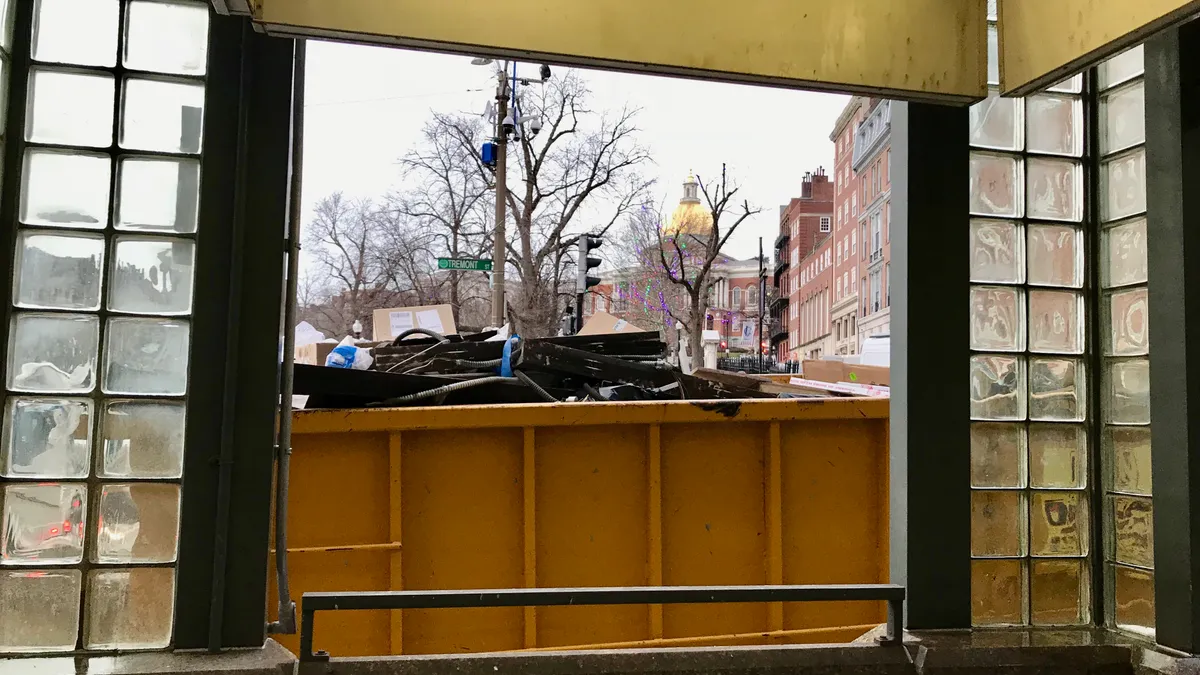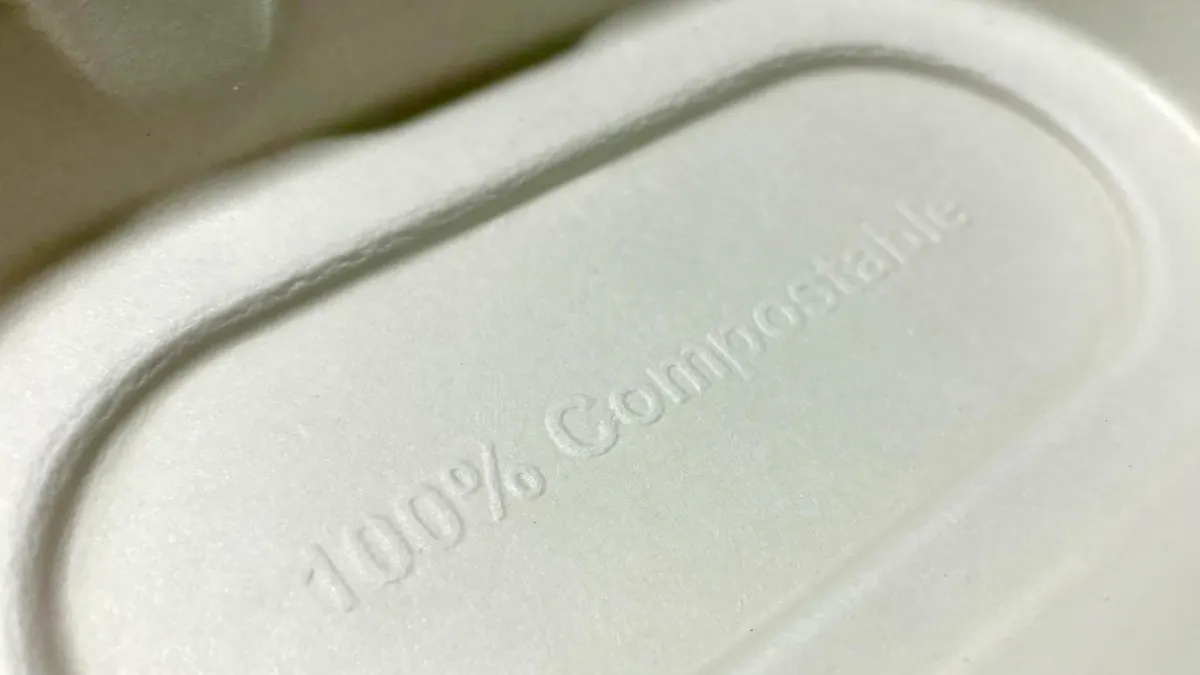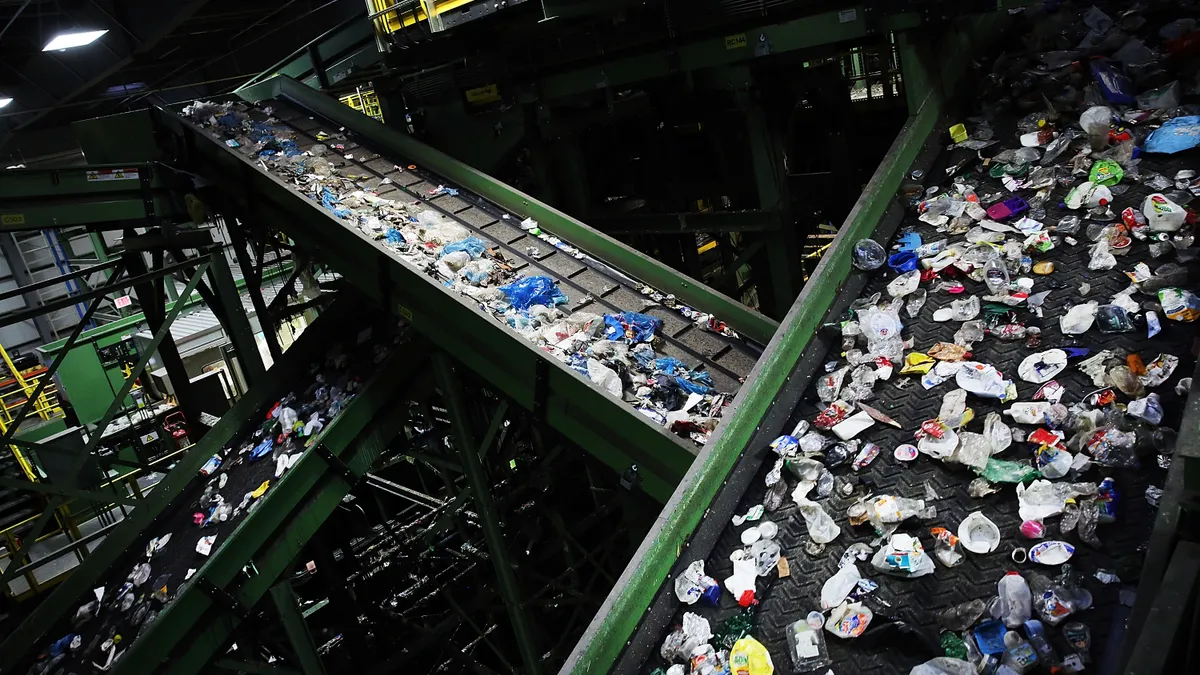The following is a contributed piece and does not reflect an editorial position by Waste Dive. Information on what that entails and how you can submit is available here.
“Recycling is broken.” “The U.S. Recycling System is Garbage.” "Recycling is Dead." Over the past year, you would be hard-pressed to miss headlines like these splashed all over the news. In the wake of some of the lowest recycling markets in history – brought on by China’s policy that closed the door to imports of American recyclables – the legitimacy of recycling has been challenged, with some even suggesting we should scrap it as a failed solution.
Meanwhile, in the face of looming catastrophes like climate change, ocean plastic pollution, ecosystem destruction, and public health threats caused by rampant production and consumption, more and more people are realizing that recycling alone isn’t going to save us.
That doesn’t mean we should abandon recycling. America Recycles Day is this week – so let’s set the record straight about what and how America should be recycling.
As nonprofit recyclers, we demonstrate every day that recycling is an important piece of the puzzle to getting us out of this crisis. Unfortunately, the evolution of recycling has inadvertently propped-up the “throw-away” society we are trying to fight. Now, recycling is often used as a crutch to allow players like the plastics industry and big brands to continue to profit under the guise that consumers and the recycling industry are somehow responsible for whatever products they dish out.
Of course recycling can’t be the solution to all waste – it was never meant to be. But recycling can give a second life to some materials, while we build toward solutions with much better prospects like reuse and reduction.
As non-profit, zero waste mission-based recyclers (who originally brought community recycling programs to the U.S. back in the 1970s), we have been operating recycling facilities and programs to help realign recycling with its original purpose. The point is to protect human health, preserve natural resources and habitats, reduce our carbon footprint, and strengthen regional economies – not just generate profit.
But our jobs are becoming harder as major consumer brands flood the market with more and different types of single-use plastics and other disposable packaging, insisting that these items should be included in our recycling programs. At the same time, the industry does little to nothing to actually make their products recyclable, use recycled content, or invest in recovery infrastructure. Instead, the packaging these brands churn out has been found polluting communities around the world.
Our message on this America Recycles Day is simple: we must keep recycling and invest in improvements, but we can’t stop there. Companies need to work with us, not against us.
There are several ways that cities and states can drive companies to make the reforms needed to save our recycling systems. Requiring that producers pay for the cost of managing the end-of-life of their products gives them a financial imperative to design wisely. This means using fewer resources, developing reusable packaging where possible, and ensuring any product deemed “recyclable” or “compostable” is first approved by the industries that will have to process it. Cities and states can also mandate that companies use a certain amount of recycled materials in their packaging, which ensures a strong and stable market for recyclables.
This year, California legislators tried to pass a groundbreaking new bill SB 54 that would have done much of this. It passed committees in both the state Assembly and Senate with large majorities, but in the final days industry lobbyists came out of the woodwork to water it down and add poison pills. The bill was held over and would still be an amazing step forward, but many feel it does not go far enough.
Recology has now introduced the California Recycling and Plastics Pollution Reduction Act of 2020, a ballot initiative which ups the ante significantly, calling for a one penny tax on all non-recyclable plastic packaging. A recent poll shows that over 70% of Californians support such a tax. These approaches that address packaging design and the end of life costs have to be a part of any zero waste future.
Of course, the no-brainer solution is to discontinue the production and use of avoidable, single-use plastics. Communities across the globe have already succeeded in banning or restricting these plastics.
Lastly, it’s time for us to defend what recycling is, and what it is not. Industry is presenting false solutions under the banner of recycling. Beware the wolf in sheep’s clothing. Unproven and unregulated technologies like “chemical recycling” are often a misnomer for dirty plastics-to-fuel or other combustion technologies. If it doesn’t protect our health and the environment and prevent the need for more resource extraction, it’s not recycling.
On this America Recycles Day, we have a huge opportunity – and imperative – in front of us. It’s time to reclaim recycling as a cornerstone of a truly regenerative zero waste system that values people and planet, not just profit.
The contributors to this opinion piece from the Association of Mission-Based Recyclers are: Suzanne Jones, executive director, and Marti Matsch and Kate Bailey, directors, at Eco-Cycle in Colorado; Martin Bourque, executive director of the Ecology Center in California; Lynn Hoffman and Kate Davenport, co-presidents of Eureka Recycling in Minnesota; and Bryan Ukena, CEO of Recycle Ann Arbor in Michigan.
















